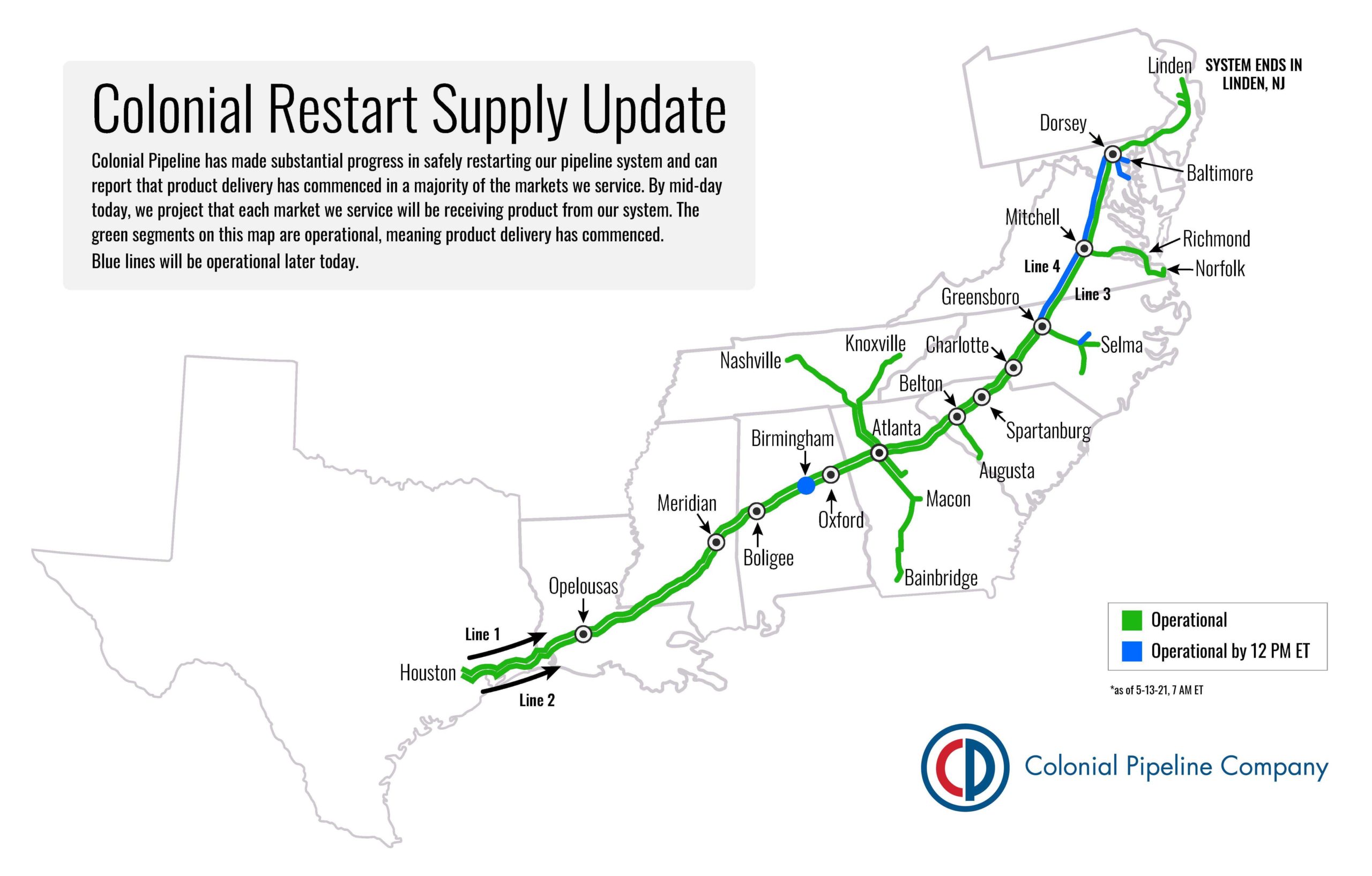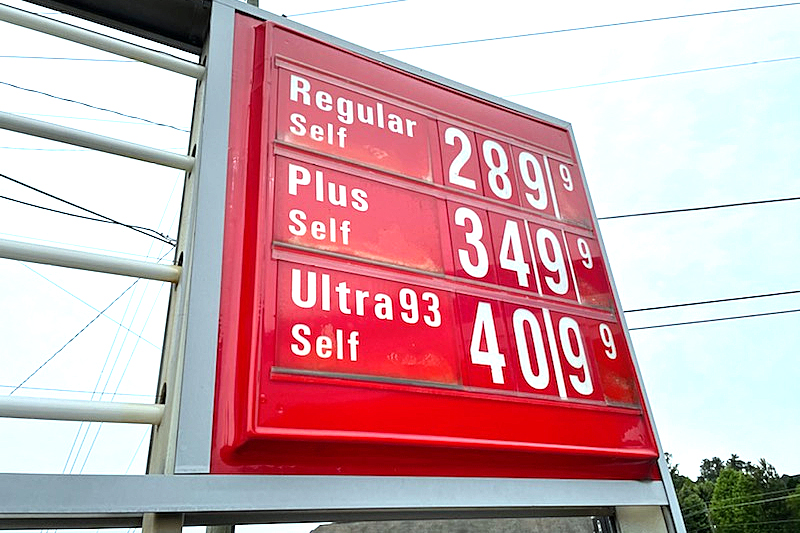Earlier today — at 9:00 in the morning Eastern Daylight Time on Thursday, May 13, 2021 — Colonial Pipeline Company reported that refined fuel is being delivered once again as a result of the restart of operations of its main pipeline, which was disrupted by a cybersecurity attack which involved ransomware last week.
Update: Pipeline is Operational as Refined Fuel is Delivered Once Again

“Colonial Pipeline has made substantial progress in safely restarting our pipeline system and can report that product delivery has commenced in a majority of the markets we service”, according to this official press release from Colonial Pipeline Company. “By mid-day today, we project that each market we service will be receiving product from our system. The green segments on this map are operational, meaning product delivery has commenced. Blue lines will be operational later today.”
With approximately 5,500 miles of pipe, Colonial Pipeline is the largest pipeline of refined products in the United States, with greater than 100 million gallons of fuel — or 2.5 million barrels per day — transported daily to meet the energy needs of consumers in 14 states from Houston in Texas to Linden in New Jersey; and the pipeline supplies approximately 45 percent of all fuel consumed on the east coast of the United States while providing refined products to greater than 50 million Americans…
…but the pipeline also supplies refined jet fuel to seven international airports which serve the greater metropolitan areas of Atlanta, Nashville, Charlotte, Greensboro, Raleigh-Durham, Washington Dulles, and Baltimore-Washington — in addition to airports in the greater metropolitan area of New York, which are served via connections with Buckeye Pipeline — and as a result, airlines had reportedly added fuel stops to what were otherwise nonstop flights to and from the southeastern United States
Past Disruptions of Colonial Pipeline
This incident is certainly not the first time which the Colonial Pipeline was disrupted.
- The Colonial Pipeline was completely shut down back in September of 2016 because of a leaking main pipeline in Alabama, which resulted in states of emergencies declared by the governors of Georgia, Alabama and Tennessee due to a significant disruption of shipments of fuel — and as a result, fuel prices spiked in at least five states in the southeastern United States because of sporadic gasoline shortages.
- During the early afternoon of Monday, October 31, 2016, both pipelines in the area of Shelby County in Alabama were completely shut down when a gasoline pipeline exploded and severely burned at least seven workers, causing people within three miles of the incident to be evacuated — and the incident raised fears of a repeat of the aforementioned sporadic fuel shortages experienced in several states in the southeastern United States.
Summary
I hope that I am incorrect; but I have a feeling that once refined fuel is readily available once again in the no fewer than 14 states which were affected by this incident, the price of a gallon of gasoline will remain at current levels — which is approximately 30 cents per gallon more expensive than at this time last week — or perhaps even creep higher…
…especially as rumors that the supply of fuel may be scarcer than usual this summer — and, thus, increase prices as a result — were predicated on a shortage of greater than 50,000 qualified drivers of tanker trucks who are needed to deliver fuel to service stations as a result of the current 2019 Novel Coronavirus pandemic. Those rumors have yet to be substantiated at the time this article was written.
I still believe that if people did not needlessly panic, this issue would not have been nearly as significant as it became. I did not run out and fill the tank of my vehicle when I heard the news — and I still have not purchased gasoline since before this incident was publicly revealed.
Meanwhile — at the time this article was written — Colonial Pipeline Company still has not revealed how it will ensure that the operation of its pipelines will be significantly more secure to help prevent incidents like this one from happening again…
Photograph ©2021 by Brian Cohen.
